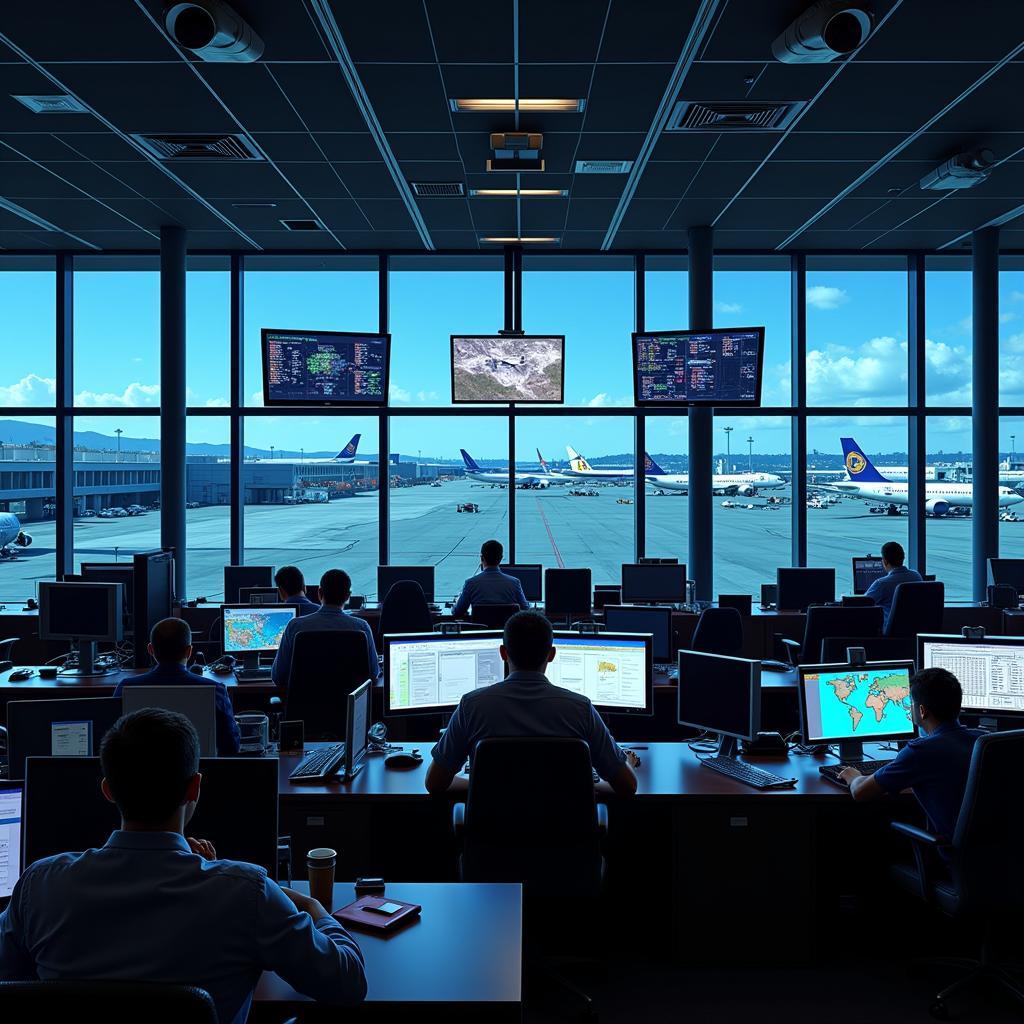Airport management is a complex field encompassing a wide range of responsibilities, from ensuring smooth daily operations to strategic planning for future growth. It involves coordinating various departments, managing resources efficiently, and prioritizing passenger safety and satisfaction. This intricate process requires a deep understanding of aviation regulations, security protocols, financial management, and customer service.
The Core Functions of Airport Management
Effective airport management revolves around several key functions. These interconnected areas work together to ensure the airport runs smoothly and efficiently.
- Operations Management: This involves overseeing day-to-day activities, including aircraft handling, passenger flow, baggage handling, and runway maintenance. Efficient operations management minimizes delays, optimizes resource allocation, and enhances the overall passenger experience.
- Security Management: Airport security is paramount. This function encompasses implementing and enforcing security protocols, managing security personnel, and utilizing advanced technology to detect and prevent threats. A secure environment is crucial for maintaining public trust and ensuring safe travels.
- Financial Management: Sound financial management is essential for the sustainability of any airport. This involves budgeting, revenue generation, cost control, and investment planning. Strategic financial decisions are necessary for long-term growth and development.
- Customer Service: Providing excellent customer service is crucial for passenger satisfaction and loyalty. This includes facilitating smooth check-in processes, providing clear information, addressing passenger inquiries promptly, and resolving complaints effectively.
- Emergency Management: Airports must be prepared for any emergency. This function involves developing and implementing emergency plans, conducting regular drills, and coordinating with emergency services. A robust emergency response system is critical for mitigating risks and protecting lives.
 Airport Management Operations Control Center
Airport Management Operations Control Center
Navigating the Challenges of Airport Management
The dynamic nature of the aviation industry presents unique challenges for airport management. Adapting to these challenges requires innovative solutions and strategic thinking.
- Increasing Passenger Traffic: The growing demand for air travel necessitates efficient management of passenger flow and infrastructure development to accommodate larger volumes of travelers.
- Evolving Security Threats: Airport security must constantly evolve to address emerging threats. This requires ongoing investment in advanced security technologies and training for security personnel.
- Environmental Sustainability: Minimizing the environmental impact of airport operations is increasingly important. This involves implementing sustainable practices, reducing emissions, and promoting energy efficiency.
- Technological Advancements: Keeping pace with technological advancements is crucial for optimizing airport operations and enhancing the passenger experience. This includes integrating new technologies for baggage handling, passenger processing, and security screening.
 Airport Management Passenger Flow Management
Airport Management Passenger Flow Management
You can delve deeper into specific areas of airport management by exploring resources such as about airport mangmentstudy. This resource provides valuable insights into the academic aspects of the field.
What is the Role of Technology in Airport Management?
Technology plays a vital role in modernizing airport operations and enhancing the overall passenger experience. Automated systems, data analytics, and digital platforms are transforming how airports are managed.
- Automated Check-in and Baggage Handling: Self-service kiosks and automated baggage handling systems streamline passenger processing and reduce waiting times.
- Real-time Flight Information Displays: Digital displays provide passengers with up-to-the-minute flight information, minimizing confusion and improving communication.
- Enhanced Security Screening: Advanced security technologies, such as biometric screening and explosive detection systems, enhance security measures and protect passengers.
For those interested in pursuing a career in this field, understanding the educational pathways is essential. Resources like 12 pass airport management science can provide valuable information for aspiring professionals.
The Future of Airport Management
The future of airport management will be shaped by continued technological advancements, evolving passenger expectations, and a growing focus on sustainability.
- Smart Airports: The concept of “smart airports” involves integrating various technologies to optimize operations, enhance security, and personalize the passenger experience.
- Biometric Technology: Biometric technology will likely play an increasingly prominent role in passenger processing and security screening, further streamlining travel.
- Sustainable Practices: Airports will continue to adopt sustainable practices to minimize their environmental footprint and contribute to a greener future.
 Airport Management Future Smart Airport
Airport Management Future Smart Airport
Further exploration of career options within the aviation industry can be found at b sc airlines and airport management. This resource offers valuable information about educational programs and career paths.
Conclusion
Airport management is a multifaceted field that demands a comprehensive understanding of aviation operations, security protocols, financial management, and customer service. Effective airport management is crucial for ensuring smooth and efficient operations, enhancing passenger satisfaction, and driving sustainable growth within the aviation industry. By embracing technological advancements and adapting to evolving challenges, airport management will continue to play a vital role in shaping the future of air travel. For those interested in pursuing a career in this dynamic field, resources like bsc in airline and airport management provide valuable information. Similarly, exploring options like 12 pass airport management can be beneficial for aspiring professionals.
FAQ
- What qualifications are needed for airport management?
- What are the key challenges faced by airport managers?
- How does technology impact airport management?
- What is the role of customer service in airport management?
- What are the future trends in airport management?
- How does airport management contribute to aviation safety?
- What are the career opportunities in airport management?
For further assistance, please contact us at Phone: +13089626264, Email: [email protected], or visit our office at 404 Bothwell St, Oxford, NE 68967, USA. We have a 24/7 customer service team.